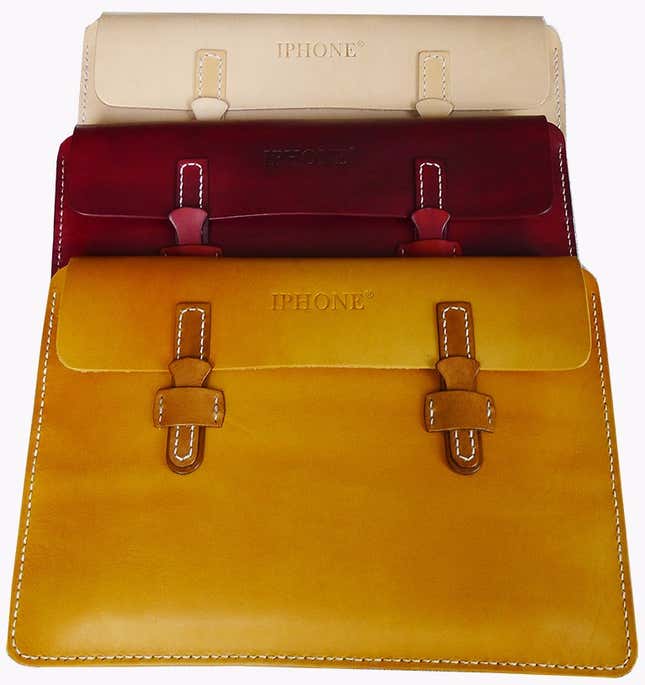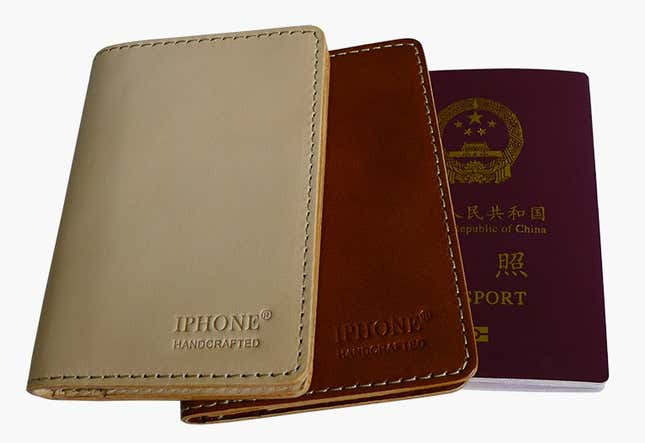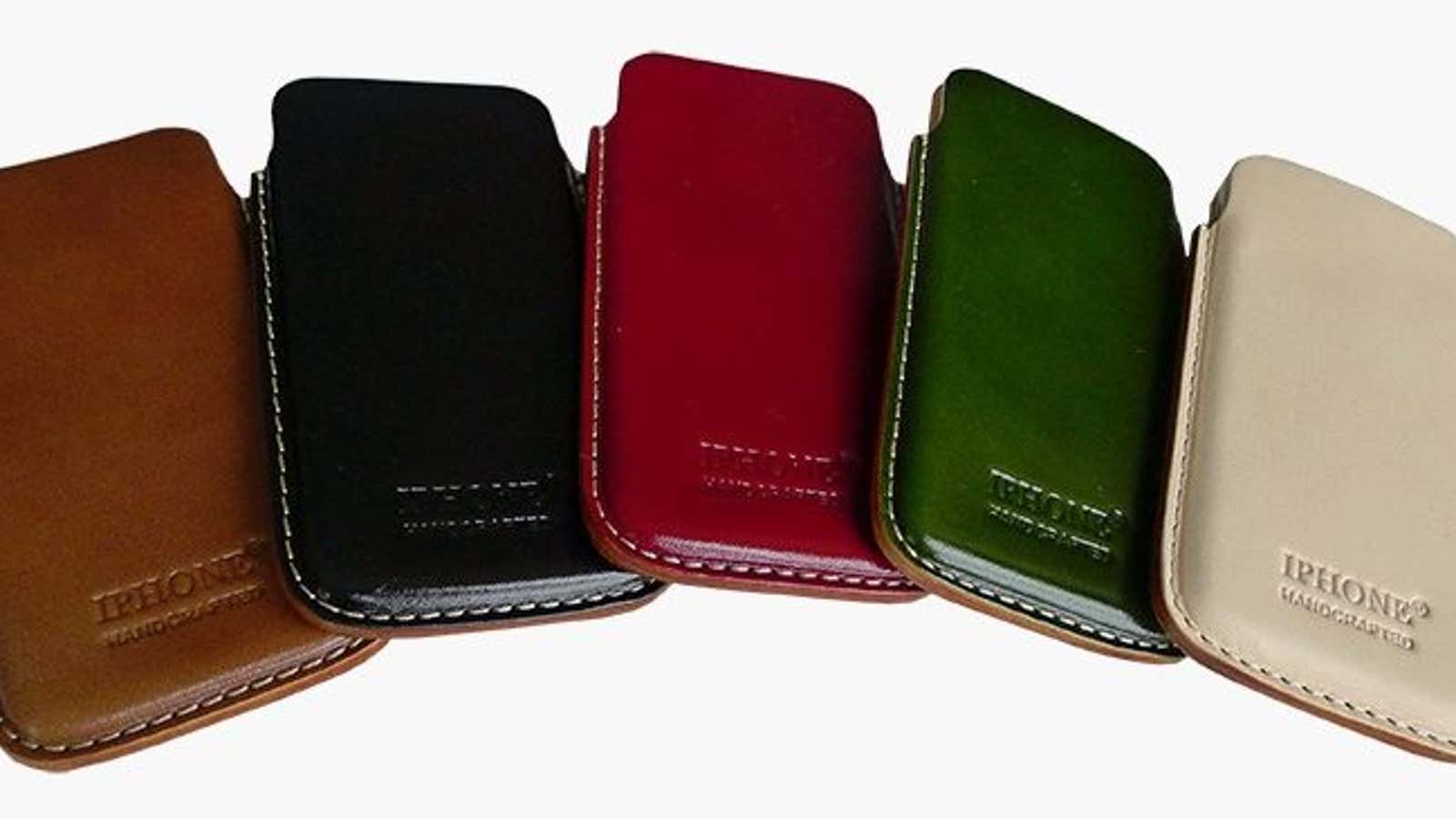Apple no longer exclusively owns the iPhone name in China. The California tech giant recently lost a trademark suit against a Chinese company, which now holds the right to make and sell handbags and other leather products branded “IPHONE.”
The Beijing Municipal High People’s Court rejected Apple’s appeal of the trademark dispute against Xintong Tiandi Technology (Beijing) Co., Ltd. on Mar. 31, state media Legal Daily reported (link in Chinese). The final judgement allows the Beijing company to brand leather products including handbags, purses, and cellphone and passport cases with the name “IPHONE.”
There’s already a good assortment of these products on the company’s website, iphone.vc.


Xintong Tiandi registered the “IPHONE” trademark to make leather products back in 2007, about five years after Apple registered the same name in China for computer software and hardware. Apple first took the case to the Chinese trademark authority in 2012, and then filed a lawsuit in a lower Beijing court. But both the trademark authority and an earlier court ruled against Apple.
According to a 2013 ruling from the Chinese trademark authority, cited by Legal Daily, because Apple could not prove that “IPHONE” was already a well-known trademark in China before Xintong Tiandi registered it in 2007, “the general public will not link the trademark in dispute with Apple to harm its [Apple’s] interests.”
The Beijing Municipal High People’s Court’s final judgement backs that decision, and notes that iPhone was first sold in mainland China in 2009. The judgement makes no distinction between Apple’s lower-case “i” in the brand and Xintong’s uppercase “I,” referring to both company’s brands as “IPHONE.”
Apple did not respond to a request for comment.
Xintong Tiandi wrote on its website (link in Chinese) that the court’s decision is a reflection of a “free market.” “We will also make full achievement of the ‘iphone’ trademark, and work together [with Apple] to benefit more iphone consumers!,” it said on the site.
It’s not the first time Apple has lost in a trademark dispute in China. In 2012, a court ruled Apple should pay $60 million to a Shenzhen tech firm to end a dispute over the iPad name. But as scrutiny over Apple’s relationship with Chinese authorities rises, and the company’s share price slides, it could to raise more questions about Apple’s future in China.
